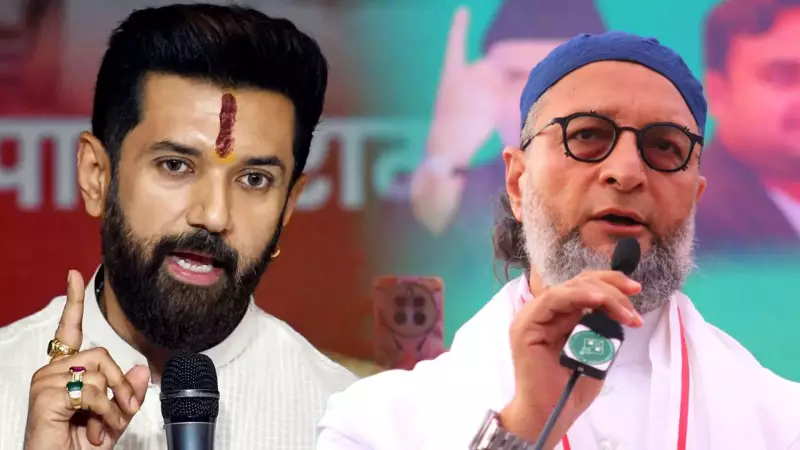
In a dramatic political confrontation, Lok Sabha member Chirag Paswan has launched a blistering criticism against All India Majlis-e-Ittehadul Muslimeen (AIMIM) president Asaduddin Owaisi, accusing him of employing fear-based political strategies that allegedly fragment the Muslim community.
The Core Allegation: Dividing Through Fear
Paswan didn't mince words during his recent statements, directly challenging Owaisi's political methodology. "The politics of fear has no place in a democratic society," Paswan asserted, suggesting that Owaisi's approach deliberately creates divisions within Muslim voters for narrow political advantages.
Political Motivations Behind the Attack
The timing and nature of these accusations point to several underlying political currents:
- Electoral considerations in key constituencies with significant Muslim populations
- Ideological positioning against identity-based politics
- Broader political realignments ahead of crucial state elections
Owaisi's Political Track Record
Asaduddin Owaisi, a four-time MP from Hyderabad, has built his political career representing Muslim interests in Parliament. His party, AIMIM, has consistently positioned itself as a voice for Muslim concerns and rights.
However, critics like Paswan argue that this representation sometimes crosses into what they describe as "fear-mongering" tactics that prevent Muslim voters from exploring other political alternatives.
The Broader Political Context
This confrontation occurs against a backdrop of intense political competition for minority votes. The allegations touch upon sensitive questions about:
- How political parties engage with religious communities
- The boundaries between representation and polarization
- The evolving nature of identity politics in contemporary India
Political analysts suggest that Paswan's strong statements reflect growing tensions between different political approaches to community representation and voter mobilization.
Potential Political Fallout
The public nature of these accusations ensures they will reverberate through political circles, potentially affecting:
- Alliance dynamics between political parties
- Voter perceptions in constituencies with substantial Muslim populations
- Broader debates about inclusive versus divisive politics
As the political temperature rises, all eyes remain on how Owaisi and his party will respond to these serious allegations, and whether this confrontation will reshape political equations in key regions.






